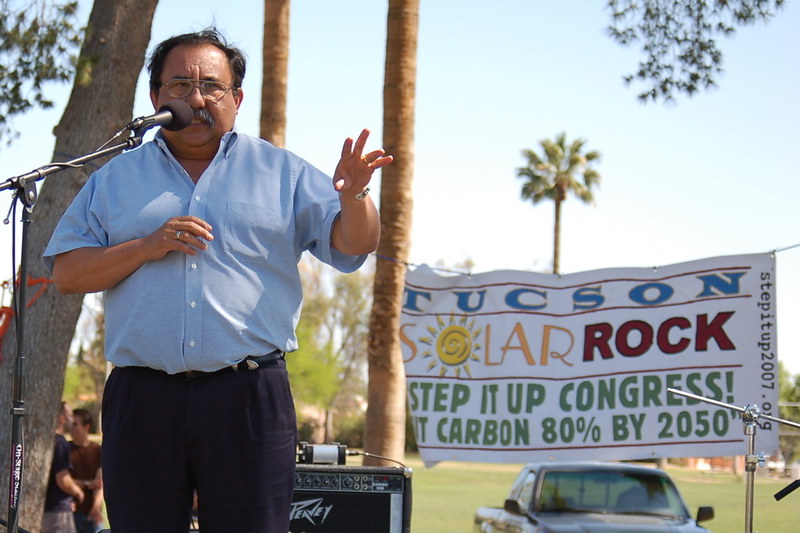With Valentine’s Day less than a week away, Campus Health Service is educating UA students about sexual health by bringing back SexTalk Week.
Since the 1970s, under the name National Condom Week, SexTalk Week has been held annually by Campus Health with a list of events presented on campus to promote sexual responsibility. This year’s events began Monday and will continue until Friday.
“We hope students will gain information and knowledge about safer sex, risk reduction, birth control options, condoms and the importance of getting tested and getting consent from their partner,” said Carrie Hardesty, health educator for the service. “Our goals of the week are to promote sexual responsibility and healthy relationships, reduce negative outcomes of sexual behavior and increase sexual health knowledge among the UA community.”
Some of the events held so far include Sex at the Rec, where more than 300 students visited a Campus Health booth at the Student Recreation Center to get a free sex grab bag. Campus Health also hosted a free discussion by a panel of wellness experts about sexual health for women in the Student Union Memorial Center on Tuesday, as well as provided information on Lesbian Gay Bisexual Transgender Questioning Allied support groups. SexTalk Week will continue today with a Sexual Health Resource Fair on the UA Mall from 10 a.m. to 1:30 p.m., where students can stop by and learn about sex topics including sexual health, relationships, birth control, pregnancy, adoption, sexual assault, abstinence and STDs from a variety of campus groups, students and community groups.
“We encourage students to check out the free info, get involved, meet the community experts and get their questions answered at these free events,” Hardesty said.
Campus Health will also host a free sex education workshop today at 5 p.m. in the Rincon Room of the student union, Advanced Queer Sex Ed, supported by the Office of Lesbian, Gay, Bisexual, Transgender, and Questioning Student Affairs.
“I think the UA should provide sex education to students,” said chemistry junior Kalli Butters. “Most people come right from high school and feel uncomfortable talking about sex and then suddenly get thrown into the college scene. There needs to be something there to tell students it’s OK to talk about sex.”
In the 2011 Health and Wellness Survey conducted by Campus Health, 79 percent of UA students are reported to have had one or no sexual partners in the last year, and when a person is sexually active, 77 percent of students used a condom.
“Not everyone is having sex, but for those who choose to be sexually active, it is critical to know how to reduce your risks,” said Lee Ann Hamilton, assistant director of Health Promotion and Preventative Services. “We want to educate students on how to make sex safer.”
Hardesty said these types of numbers provide more insight into the kind of sexual health and responsibilities practiced on campus and what Campus Health can do to be a resource for safe sexual practices.
“UA students, sexually active or not, need to have and should have accurate and comprehensive sex education information,” Hardesty said. “They can use this knowledge to protect themselves and their partners if and when they do decide to participate in any kind of sexual activity.”
In addition to SexTalk Week, Campus Health provides yearlong services pertaining to sexual health and responsibility. This includes Health Promotion and Preventive Services, which offers sexual awareness programs year-round, and the Oasis Program, which provides counseling services to people who have been sexually assaulted and violence-prevention programs.
“We are here as a resource for students,” Hamilton said. “People can always call the friendly health educator at Campus Health.”







